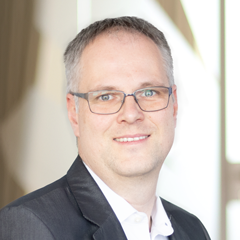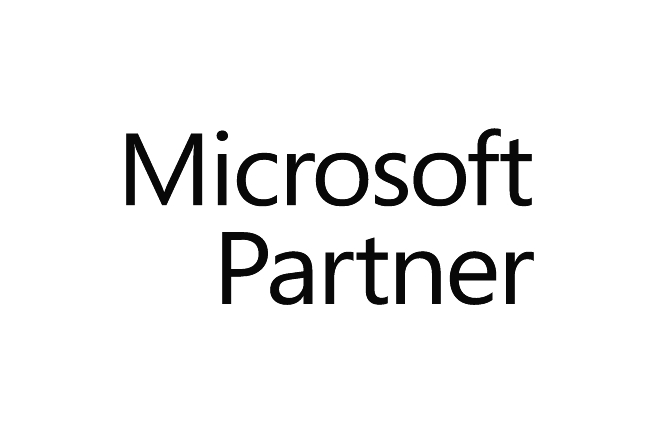
Container Technologies
and PaaS
Efficient Development Environments with Container Software and PaaS Solutions
Rapid changes in market demand require companies to adapt faster than ever and shorten their time to market. In software development, this entails creating an efficient environment that enhances both the speed and quality of the development process. Software projects commonly encounter the following challenges:
Time
To enhance efficiency and flexibility, it is vital to establish a development environment that minimizes extensive setup and training requirements. High employee turnover in software projects often poses challenges for IT project managers, underscoring the importance of streamlining the onboarding process for new developers.Costs
One of the most significant challenges in IT projects is scaling applications within complex infrastructures. As applications are expected to grow and evolve, this often leads to heterogeneous infrastructures that combine private and public clouds. While public cloud scalability is often chosen for cost-efficiency, sensitive components are typically kept within the corporate network. Another critical challenge is the risk of 'vendor lock-in' associated with cloud platforms. This dependency can make future migration to a different, potentially more cost-effective cloud platform prohibitively expensive and resource-intensive.Scope and Quality
The dynamic market landscape demands rapid changes and accelerated growth in the adoption of software solutions. The DevOps approach, which breaks down traditional silos between development and operations, requires a significant transformation in software project management. Additionally, the growing adoption of microservices often leads to more complex deployment processes. Amid these substantial shifts, maintaining consistent quality standards throughout the software development process remains crucial.

Achieving Flexibility and Efficiency with Standardized Container Software
Container technologies such as Docker, combined with continuous integration and delivery, accelerate the implementation of new requirements by providing a consistent runtime environment for the software and flexible deployment in a unified packaging format. The latter also supports the DevOps approach by establishing a standardised format to facilitate a tight link between development and operation. With the use of container technologies and Platform as a Service (PaaS), you can make your software projects more efficient in many ways and ultimately achieve sustainable, high-quality software.
Faster Project Setup and Maximum Flexibility
Using Docker containers allows developers to quickly provision a local runtime environment, including a database. Building on this, Platform as a Service (PaaS) can establish the necessary framework conditions and provide self-service options for developers. This empowers developers to independently create resources, such as databases, as needed. Even with high employee turnover within the project team, this approach helps maintain project timelines, resulting in substantial time and cost savings.Reduction of Complexity and Standardisation of Software
Container technologies introduce a software-based abstraction layer for complex infrastructures, enabling a more efficient and streamlined approach to managing intricate IT environments. Technically, it makes no difference whether a component is deployed in a private cloud, such as OpenShift, or a public cloud, like Microsoft Azure. The continued standardization of container formats by the Open Container Initiative (OCI) further enhances flexibility, reducing dependency on specific cloud or PaaS platforms.Efficient Deployment of Microservices and Maximum Scalability
Container technologies and Platform as a Service (PaaS) are ideally suited for running microservices. Deploying microservices within containers offers an efficient approach to adopting a microservices architecture and maximizing its benefits. PaaS solutions like OpenShift streamline the provisioning, management, and scaling of applications, enabling developers to concentrate entirely on implementing business logic.
doubleSlash: Your Trusted Partner for Implementing Container Technologies and PaaS Solutions
Implementing a continuous integration pipeline and container technologies significantly increases the throughput of software changes within a software project
Implementing a continuous integration / continuous delivery and PaaS environment provides customers with their own standardised template for new software projects
Creating automated development environments minimises setup time for software developers working on the project
We recommend Microsoft Azure and Red Hat OpenShift for PaaS deployment
![[Translate to Englisch:] Docker Container Image Registry [Translate to Englisch:] Docker Container Image Registry](/fileadmin/doubleslash/Technologien/cicd-pipeline_825x400.png)
We Have Extensive Experience in PaaS and Container Technologies
- Support in simplifying development environments with containers
- Containerisation of applications using Docker
- Setting up of Docker containers for your software services
- Integrating containers into continuous integration / continuous delivery pipeline
- Building of a PaaS platform with OpenShift
- Support in using Azure for PaaS
Our IoT Partners
How Can We Assist You with Container Technologies and PaaS?
We support you with container technologies and PaaS, from Docker expertise to consulting services.


